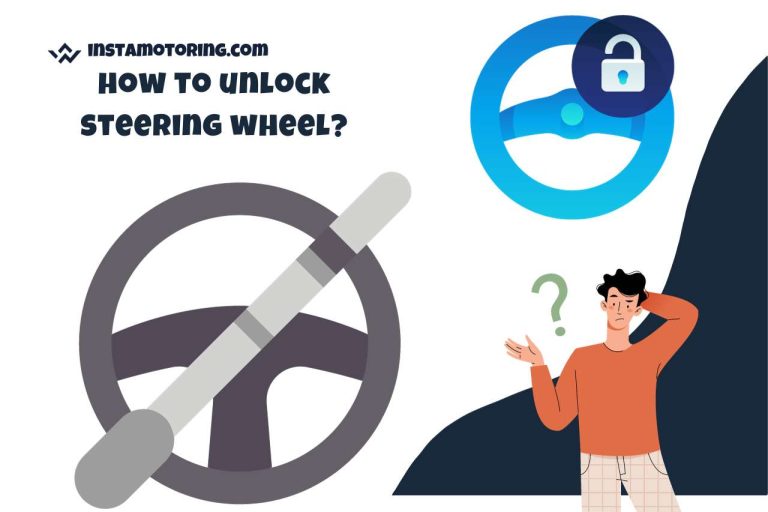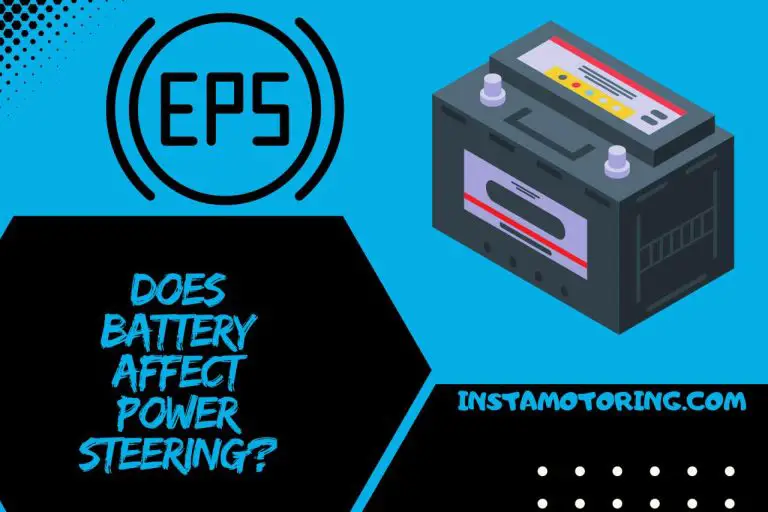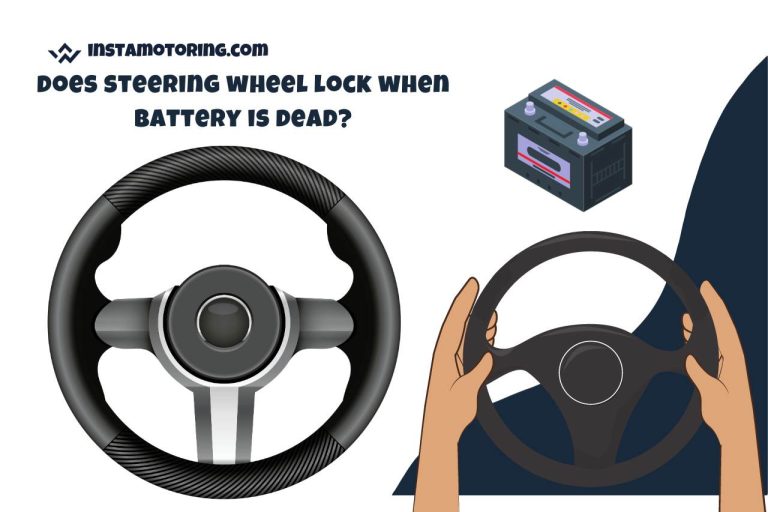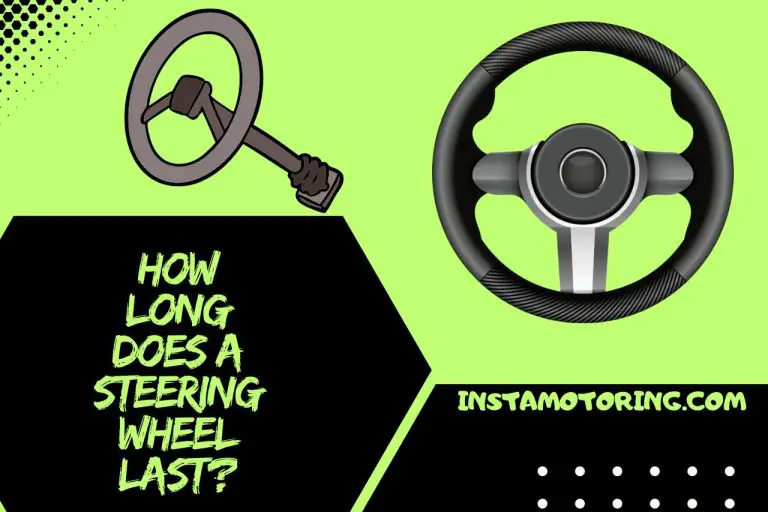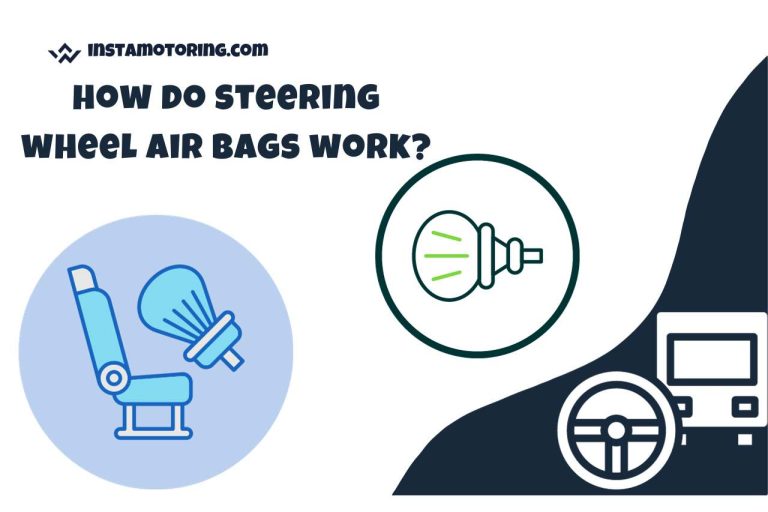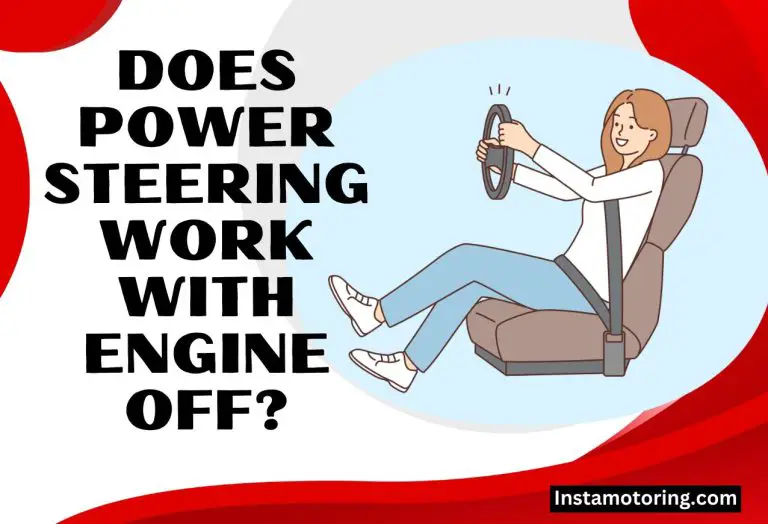Does Power Steering Make a Noise? Yes, But Why?
Hearing unusual noises from your vehicle is never enjoyable. What about the power steering system? Does it make noise? Yes, power steering systems can indeed generate some noise when there are problems within the system.
So, if you suspect your vehicle’s power steering system is making noise, this is the guide you don’t want to miss, as we explain everything in detail throughout the article. Let’s get started.
Does Power Steering Make a Noise?
Yes, power steering can make noise, and there are various reasons behind it. When you turn the steering wheel, you might hear sounds such as whining, squealing, grinding, or clicking from the power steering system.
These noises can be attributed to several factors, including low power steering fluid levels, air in the system, worn-out components, or issues with the power steering pump. Here is a comprehensive explanation of the abnormal noises coming from the power steering system.
1. Low Power Steering Fluid and Unusual Noises in the Power Steering System
If you’ve noticed a persistent whining noise coming from the power steering system, one of the prime suspects is the low power steering fluid. Here’s how this scenario unfolds and power steering fluid contributes to those unwanted sounds in the power steering system.
Power steering fluid serves as a crucial lubricant within the system, ensuring the smooth and seamless operation of various components. If you notice low power steering fluid, it usually tells that there is a leak in the power steering system or gradual evaporation over time. Leaks can occur in hoses, the power steering pump, or the steering rack.
With insufficient fluid, there’s an increase in friction among the moving parts of the system. This increased friction generates a distinctive whining noise in the power steering system.



On the other hand, the power steering pump, which is responsible for circulating the fluid, experiences increased strain when fluid levels are low. This strain can lead to an audible whining sound as the pump works harder to maintain pressure.
In addition, low power steering fluid levels also pave the way for air to enter the system, causing aeration. The presence of air bubbles can intensify the noise, contributing to a distinct whining or groaning sound coming from the power steering system. Let’s go to the next factor.
2. Belt Issues and Unusual Noises in the Power Steering System
Belts play a crucial role in the power steering system by connecting the engine to the power steering pump. The pump pressurizes the power steering fluid, providing the necessary assistance for easy steering.
If you’re hearing a squealing or screeching noise in the power steering system, particularly during sharp turns, worn-out or loose belts could be the culprit. Over time, belts can experience wear and tear due to exposure to various elements, including heat, friction, and the general aging process.
Worn-out belts may lose their original tension, becoming loose in the process. This reduction in tension can lead to slippage, causing the squealing or screeching noise you hear.
As the belts lose their effectiveness, they may slip against the pulleys connected to the power steering pump. This slippage generates increased friction, resulting in audible noises during steering maneuvers.
Moreover, during sharp turns, the demand for power steering assistance increases. If the belts are already compromised, the additional strain can intensify the noise, making it more noticeable during these maneuvers.
3. Power Steering Pump Problems and Noises in the Power Steering System
If you hear a persistent whining noise coming from the power steering system it could be a sign of a faulty power steering pump. This noise often indicates issues with the pump’s internal components, such as worn-out bearings.
A grinding noise when turning the steering wheel can suggest more severe problems within the power steering pump, potentially involving damaged or misaligned components.
Clicking sounds in the power steering system may point to irregularities within the pump, such as damaged vanes or other internal components.
You should know that the power steering pump relies on bearings for smooth rotation. Over time, these bearings may wear out, leading to increased friction and the development of noises, especially when the pump is under load.
In addition, contaminated power steering fluid or debris within the pump can result in abrasive interactions between components, causing unusual grinding in the power steering.
Cavitation occurs when air enters the power steering pump, causing the formation of air bubbles in the fluid. This can contribute to whining or clicking noises during steering maneuvers.
Also, if the power steering pump is struggling to maintain pressure due to internal problems, it works harder during steering actions, leading to audible strain in the form of whining or grinding.
4. Worn Steering Components and Unusual Noises in the Power Steering System
Components like tie rods and ball joints are critical parts of the steering system. They connect various steering components and allow for smooth and controlled movement during steering actions.
Over time, these components can experience wear and tear due to factors such as driving conditions, road quality, and general usage.
Worn tie rods or ball joints may develop looseness in their connections. This looseness can lead to gaps or play in the steering linkage, resulting in clicking or clunking noises.
The wear on these components can compromise the overall stability and control of the steering system. Clicking or clunking sounds are often indicative of these components not functioning as intended.
As wear progresses, you may notice increased play in the steering wheel. This play allows for movement before the wheels respond, contributing to the clicking or clunking noises.
Importantly, worn steering components are interconnected with the suspension system. Any irregularities in the steering components can impact the suspension, leading to additional noises during steering maneuvers.
5. Cold Weather Effects and Noises in the Power Steering System
In colder temperatures, power steering fluid tends to become thicker. This thickening is a natural response to lower temperatures and can impact the fluid’s flow characteristics.
Thicker fluid results in increased resistance within the power steering system. When you turn the steering wheel, the pump must work harder to circulate the denser fluid, creating additional resistance.
The heightened effort required to move the thicker fluid can manifest as audible strain or whining noises. You might notice these noises particularly during initial startups or when turning the wheel in very cold weather.
Cold weather can contribute to air entrainment in the power steering fluid. As the fluid thickens, it becomes more susceptible to trapping air bubbles, leading to whining or groaning sounds during steering maneuvers.
The increased viscosity of the fluid in colder temperatures can result in a sluggish steering response. This sluggishness can be perceived through a delay in the wheels’ movement after turning the steering wheel.
Related Articles
- How to Reset Power Steering Warning Light?
- Power Steering Stopped Working Suddenly?
- Can You Drive Without Power Steering?



My name is James, I work as an Automotive Designer with 9 years of experience. I also work as a mechanic and vehicle inspector. I love deciphering complicated car exteriors and interiors and resolving fluid and oil troubles. InstaMotoring.com is here to help you troubleshoot your car with dependable and expert help.


